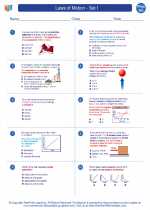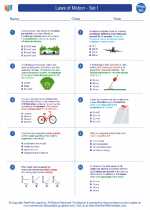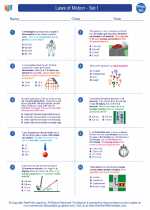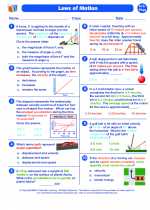Evaporation
Evaporation is the process by which a liquid turns into a gas. This occurs when the molecules in the liquid gain enough energy to break free from the liquid's surface and become vapor. Evaporation is a crucial part of the water cycle, where water from bodies of water, such as oceans and lakes, evaporates into the atmosphere and eventually condenses to form clouds and precipitation.
Factors Affecting Evaporation
Several factors influence the rate of evaporation:
- Temperature: Higher temperatures lead to increased kinetic energy in the liquid molecules, making it easier for them to escape into the gaseous phase.
- Surface Area: A larger surface area results in greater evaporation, as more molecules have the opportunity to escape from the liquid's surface.
- Humidity: Lower humidity levels in the surrounding air create a larger gradient for the liquid molecules to move into the gas phase, increasing the rate of evaporation.
- Wind: Wind can carry away the vapor molecules from the liquid's surface, allowing more liquid molecules to escape and promoting faster evaporation.
Applications of Evaporation
Evaporation has several practical applications, including:
- Drying: The process of evaporation is used to dry clothes, food, and other materials by removing moisture from them.
- Distillation: Evaporation is a key step in the distillation process, where it is used to separate substances based on their different boiling points.
- Cooling: Evaporative cooling, such as the sweat on our skin, helps to dissipate heat from our bodies and maintain a stable temperature.
Study Guide for Evaporation
To understand the concept of evaporation thoroughly, it's essential to focus on the following key areas:
- Understand the kinetic theory of matter and how it relates to the process of evaporation.
- Explore the factors that influence the rate of evaporation and their impact on the process.
- Investigate real-life examples of evaporation and its applications in different fields.
- Conduct experiments to observe and measure the effects of temperature, surface area, humidity, and wind on evaporation.
- Discuss the environmental significance of evaporation in the water cycle and its role in weather patterns.
By mastering these aspects, you can gain a comprehensive understanding of evaporation and its significance in the world around us.
.◂Physics Worksheets and Study Guides High School. Laws of Motion - Set I
Worksheet/Answer key Laws of Motion - Set I
Laws of Motion - Set I  Worksheet/Answer key
Worksheet/Answer key Laws of Motion - Set I
Laws of Motion - Set I  Worksheet/Answer key
Worksheet/Answer key Laws of Motion - Set I
Laws of Motion - Set I  Worksheet/Answer key
Worksheet/Answer key Laws of Motion - Set I
Laws of Motion - Set I 

 Worksheet/Answer key
Worksheet/Answer key
 Worksheet/Answer key
Worksheet/Answer key
 Worksheet/Answer key
Worksheet/Answer key

The resources above cover the following skills:
PHYSICAL SCIENCE (NGSS)
Energy
Students who demonstrate understanding can:
Develop and use models to illustrate that energy at the macroscopic scale can be accounted for as either motions of particles or energy stored in fields.